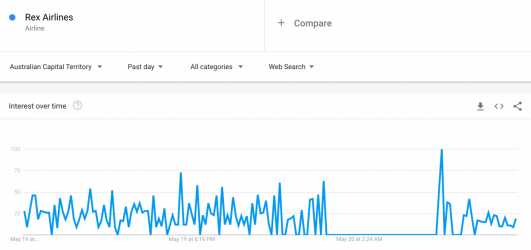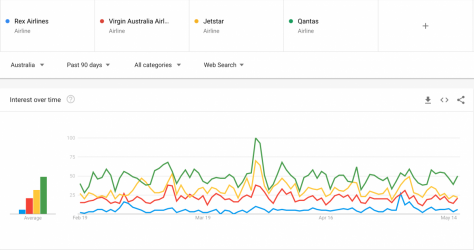What is the impact of looking at searches for Rex and Virgin instead of "Rex airlines" and "Virgin Australia Airlines" ?
Good question, there has been a slight increase in searches for 'rex' however it's clear that over the past year searches are have been high because people searching for 'rex' aren't always looking for the airline.
(graph is searches for rex over the last 5 years)
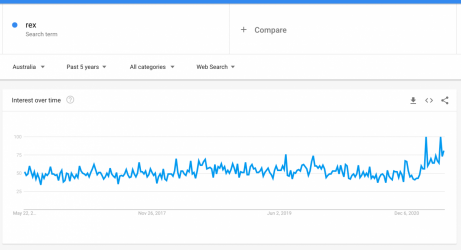
This can be seen below showing the related topics and queries for rex aren't even related to the airline.
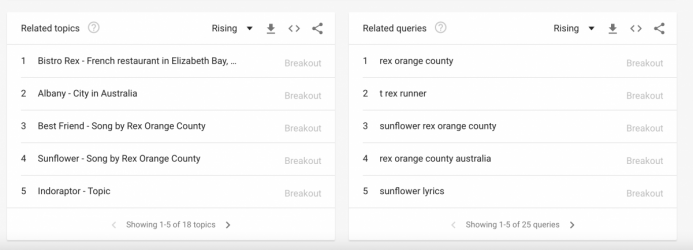
By putting in "Rex Airlines" it's actually not referring to the search term "Rex Airlines" but rather the topic of Rex Airlines:
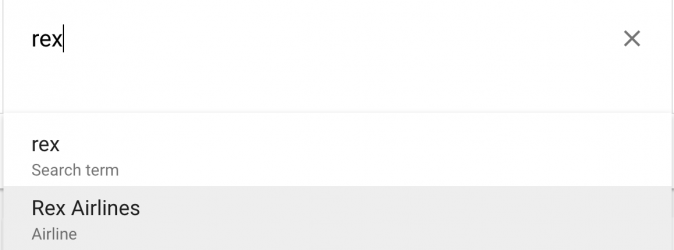
The search term 'Virgin' is slightly different as there are less related topics but it still makes more sense to just search by topic 'Virgin Australia Airlines'.
The google search trends is a public website so got nuts with the data you can pull out:
Not only is it possible to search by topic/search term but you can look at a variety of different time periods and even by state/territory. For example here are the search trends over the last 7 days for the topic "Rex Airlines" in the ACT, you can clearly spot when the CBR-MEL flights were announced and interest has dropped back down again.

All results are indexed based on the busiest time you've looked at, so in the example above the 100% is the busiest time and everything else is relative to that time. What this means in the case of people in the ACT searching about CBR-MEL flights, there was an initial peak of interest but the next day searches were down 80%.
Google doesn't give away the search volumes for a specific term however having a look at Rex airlines in the ACT and how sporadic the graph is, I suspect in the 8 minute periods outlined below it's safe to assume they're only getting a handful of searches in each 8-minute block.
